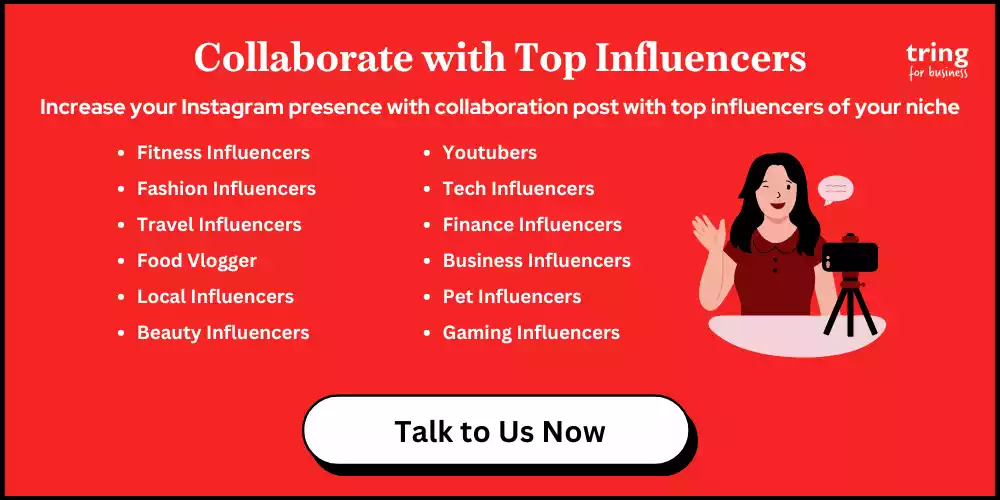Navigating Sales Challenges With The Rise of Influencer Marketing
In today’s fast-paced digital world, brands are facing a growing number of challenges in driving sales. Consumers are becoming more selective, traditional advertising methods are losing effectiveness, and market competition is more fierce than ever. To overcome these challenges, many businesses have turned to influencer marketing, a strategy that has proven to be highly effective in reaching and converting modern consumers.
1. The Shift to Digital Engagement
As consumer habits shift toward digital and social media platforms, traditional sales and advertising tactics are struggling to keep pace. Television commercials, billboards, and print ads no longer have the same reach they once did. Instead, consumers are spending their time on Instagram, TikTok, YouTube, and other social media platforms, following influencers who create engaging content that resonates with their lifestyle and interests. This shift in consumer behavior has given rise to influencer marketing, where brands collaborate with these influencers to promote their products and services in an authentic way.
By working with influencers, businesses can navigate sales challenges by tapping into a trusted voice. Influencers have already built strong relationships with their followers, and their recommendations hold weight. When an influencer shares a product or service they genuinely believe in, their followers are more likely to trust that recommendation and make a purchase. This creates a direct path from product promotion to sales.
2. Overcoming Consumer Skepticism
One of the biggest challenges brands face today is consumer skepticism. With so many advertisements bombarding consumers daily, it’s no surprise that many people have become immune to or even distrustful of traditional ads. Influencer marketing offers a solution by focusing on authenticity. Influencers are seen as relatable individuals rather than corporate entities, and their followers value their opinions.
When an influencer shares a personal experience with a product, it doesn’t come across as an advertisement but as a genuine endorsement. This authenticity helps brands overcome skepticism and build trust with their target audience, ultimately leading to higher engagement and increased sales.
3. Expanding Reach and Targeting Niche Audiences
Another sales challenge that brands encounter is finding ways to reach specific, targeted audiences. Traditional advertising methods often cast a wide net, reaching a broad audience that may not be interested in the product. Influencer marketing, on the other hand, allows brands to connect with niche markets.
Whether it’s beauty, fitness, tech, or lifestyle, influencers cater to specific segments of consumers. Brands can collaborate with influencers whose followers match their target demographic, ensuring that their message is reaching the right people. This targeted approach leads to more qualified leads, higher engagement rates, and ultimately better sales outcomes.
4. Generating Measurable Sales Results
Influencer marketing is not just about visibility; it’s about delivering measurable sales results. Through the use of promo codes, affiliate links, and trackable URLs, brands can directly monitor how influencer campaigns translate into sales. These tools provide insights into the return on investment (ROI) and help brands make data-driven decisions to optimize future campaigns.
In fact, according to research, businesses earn an average of $5.20 for every $1 spent on influencer marketing, showcasing its effectiveness in driving sales. This measurable impact makes influencer marketing a highly attractive strategy for brands looking to overcome sales challenges.
With its ability to overcome consumer skepticism and deliver measurable results, influencer marketing is a key strategy in the modern sales landscape.
Do You Want an Influencer To Promote Your Brand?
![Collaborate with Influencers Influencer Marketing Impact On Sales]()
The Impact of Influencer Marketing on Sales
As brands continue to navigate the complexities of digital marketing, understanding how influencer marketing impacts sales is key to maximizing its potential.
1. Building Trust and Credibility
At the core of influencer marketing’s effectiveness is its ability to build trust. Unlike brands, which may be perceived as pushing their agenda, influencers are seen as relatable individuals who share honest opinions and experiences with their followers. Consumers are more likely to trust someone they follow for lifestyle tips, beauty advice, or fitness routines because they see influencers as people who understand their needs and values.
This trust translates into consumer behaviour. According to a study by Nielsen, 92% of consumers trust recommendations from individuals over brands. When an influencer endorses a product, they lend their credibility to the brand, making their audience more receptive to trying the product. For instance, when a beauty influencer shares a skincare routine, followers are more inclined to purchase the featured products, believing in the influencer's authenticity. This authentic connection often leads to higher sales conversions as followers feel confident in making purchasing decisions based on trusted recommendations.
2. Increased Product Visibility and Brand Awareness
One of the primary reasons brands collaborate with influencers is to boost their product visibility and reach a wider audience. Influencers have the ability to bring products to the forefront of social media, which is where many consumers spend a significant portion of their time. Platforms like Instagram, YouTube, and TikTok are hotbeds for influencer-driven content, and each platform provides unique ways for influencers to showcase products creatively.
For example, through unboxing videos, influencers create excitement around product launches, allowing followers to experience the product indirectly before they purchase it. This type of content generates buzz and curiosity, leading to heightened brand awareness. Moreover, influencers often use storytelling to weave the product into their daily lives, which resonates more with audiences than traditional advertising. When done well, these campaigns can introduce a product to thousands, if not millions, of potential consumers, significantly impacting sales.
3. Direct Sales Conversions
Influencer marketing goes beyond just creating awareness—it drives direct sales conversions. Through various tactics, such as affiliate marketing, exclusive promo codes, or limited-time offers, brands can track the impact of an influencer's promotion on actual sales. Influencers often integrate call-to-action (CTA) phrases like "Swipe up to shop" or "Use my code for 10% off" into their posts, which encourages followers to take immediate action.
By leveraging these trackable elements, brands gain real-time insights into the effectiveness of their campaigns. A clear example of this is in the fashion industry, where influencers frequently partner with brands to launch limited-edition collections or exclusive products. Followers, eager to emulate the influencer's style, are driven to purchase the collection, often leading to sold-out products within hours. These real-time conversions illustrate how influencer marketing can significantly boost a brand's revenue.
4. The Role of Influencer Reviews and Tutorials
Influencer reviews and tutorials are powerful tools for product discovery. Many consumers rely on influencers to provide in-depth reviews or demonstrations of products before making purchasing decisions. Whether it’s a detailed makeup tutorial, a fitness regimen, or a tech review, influencers offer a personal touch that traditional marketing cannot replicate.
Consumers feel more confident purchasing a product when they see it in action, especially from someone they trust. For example, a tech influencer might provide a hands-on review of a new smartphone, showing its features and how it performs in real-life scenarios. This level of detail gives consumers the information they need to decide whether the product is worth buying. In fact, 81% of consumers say they have purchased a product after seeing an influencer use it, according to a survey by Influencer Marketing Hub. This demonstrates the significant role influencers play in shaping purchase decisions through their content.
5. Targeted Marketing and Niche Engagement
Influencer marketing allows brands to target specific niches more effectively than traditional advertising. By working with influencers who cater to niche markets, brands can ensure that their message reaches the right audience. This targeted approach leads to higher conversion rates because the products being promoted are directly relevant to the influencer’s followers.
For example, a fitness brand may partner with a fitness influencer who has a loyal following of health-conscious individuals. These followers are already interested in fitness-related content, making them more likely to purchase products like protein powders, workout gear, or supplements. This hyper-targeted marketing approach ensures that the influencer’s promotion resonates with the audience, leading to more meaningful engagement and, ultimately, sales.
6. Micro-Influencers vs. Macro-Influencers: Sales Impact
While macro-influencers (those with millions of followers) have the ability to reach a massive audience, micro-influencers (influencers with smaller, highly engaged followings) often have a more profound impact on sales. Micro-influencers tend to have closer relationships with their followers, resulting in higher engagement rates and stronger trust bonds.
Brands looking to drive conversions may find that micro-influencers offer a better return on investment (ROI) because their followers are more likely to act on their recommendations. For example, a micro-influencer in the beauty industry may have only 50,000 followers, but their audience is highly engaged and trusts their skincare advice. When this influencer promotes a product, their followers are more likely to make a purchase, compared to a macro-influencer whose large following may include many who are less engaged.
Both types of influencers—macro and micro—can drive sales, but brands must carefully consider their objectives when choosing which type of influencer to partner with. While macro-influencers offer broad reach, micro-influencers provide more targeted engagement that can result in higher conversions in niche markets.
7. Consumer Trust and Authenticity
The importance of authentic content in influencer marketing cannot be overstated. Consumers are increasingly wary of advertisements that feel too commercialized or inauthentic. Influencers who promote products they genuinely believe in are more likely to build long-term trust with their followers. This trust plays a critical role in influencing buying decisions, as consumers are more inclined to support brands that feel authentic and aligned with their values.
However, over-commercialization can erode consumer trust. If an influencer promotes too many products or appears overly motivated by sponsorships, their recommendations can start to feel less genuine. This can lead to a decline in engagement and trust, which ultimately reduces the effectiveness of their endorsements. Brands need to ensure that the influencers they partner with maintain a balance between sponsored content and organic posts to keep their promotions authentic and credible.
8. Influencer Marketing and Social Media Trends
Social media platforms like Instagram, YouTube, and TikTok play a central role in influencer marketing’s success. These platforms allow influencers to engage directly with their audience through a variety of content formats, from live streaming to Stories and short-form videos. Influencers often participate in viral trends, challenges, and hashtags, which further increase engagement and visibility for the brands they promote.
For example, TikTok’s trend-driven culture has led to numerous brands seeing a significant uptick in sales after an influencer participates in a viral challenge featuring their product. Similarly, Instagram Stories and YouTube tutorials offer dynamic ways for influencers to showcase products, giving consumers a comprehensive look at how a product works, leading to higher purchase intent.
9. Measuring the ROI of Influencer Marketing on Sales
One of the challenges brands face is measuring the ROI of influencer marketing. While engagement metrics like likes, comments, and shares are valuable indicators, tracking the direct impact on sales can be more complex. Tools such as promo codes, affiliate links, and tracking URLs help brands monitor conversions, but they don’t always capture the long-term impact on brand loyalty and repeat purchases.
To truly understand the sales impact, brands need to analyze a combination of metrics, including engagement, conversion rates, and customer retention. Case studies from successful influencer campaigns show that when these elements are tracked correctly, influencer marketing can deliver a significant boost to sales, providing a high return on investment.
Get an Influencer To Promote Your Brand
Ready to boost your brand’s visibility and drive sales?
![Collaborate with Top Influencers.png]()
Partner with an influencer to create authentic, engaging content that connects with your target audience. Whether you're looking for increased brand awareness or higher conversions, influencer marketing can deliver the results you need. Start today and watch your business grow through the power of trusted influencer promotions.
Get in touch with us now to find the perfect influencer for your brand!
![birthday occasion]() Birthday Gifts
Birthday Gifts
![anniversary occasion]() Anniversary Gifts
Anniversary Gifts
![women]() Women
Women
![men]() Men
Men
![Couples]() Couples
Couples
![Couples]() Wedding Gifts
Wedding Gifts

 Birthday Gifts
Birthday Gifts
 Women
Women
 Men
Men
 Anniversary Gifts
Anniversary Gifts
 Wedding Gifts
Wedding Gifts



 We now support international payments
We now support international payments
